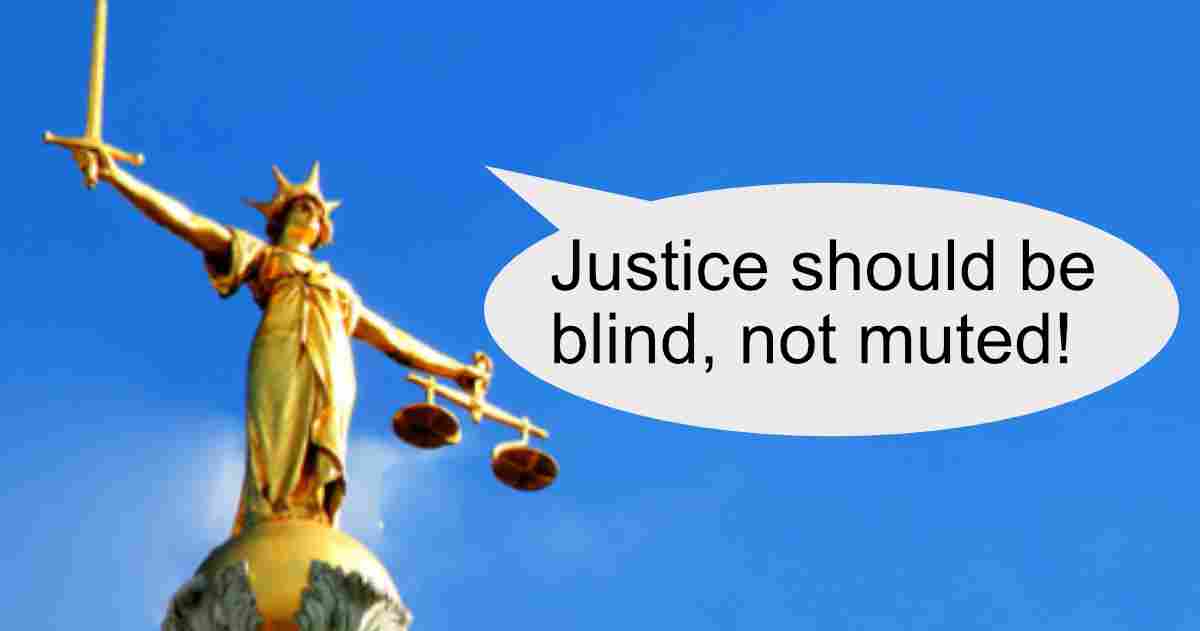Lockdown justice and the dial-in press bench

Originally published in the August 2020 edition of NUJ Informed.
When HM Courts and Tribunals Service wanted a poster boy for their revised approach to media relations, the Evening Standard’s Tristan Kirk stepped up. Speaking in a Ministry of Justice (MoJ) video he hoped that new guidelines would “smooth out that relationship between journalists and court staff ”.
Lockdown, alas, has strained such cordiality. In early August (2020) Tristan Kirk tweeted about the shortcomings of arrangements to accommodate the media at high-profile hearings, concluding with a blunt: “This isn’t good enough @ HMCTSgovuk”.
Such frustration is indicative of just how challenging Covid has made the open administration of justice.
Kirk is not the only reporter to have become exasperated. Early in lockdown, telephone access was arranged to allow reporters access to Julian Assange’s case management hearings. The audio quality one day was so poor that following proceedings was impossible. On another, those dialling in heard nothing because the switch on the feed was not pressed.
What issues have arisen must, of course, be judged against the extraordinary backdrop. Courts are used to their procedures evolving over decades. Covid changed all that. Within a week in March, the conventional administration of justice in England, and other jurisdictions, was suspended and largely unfamiliar new procedures forced into the spotlight.
New rules were hastily enacted to allow video access to court hearings. Fewer than 1,000 cases were heard using audio or video technology in the last week of March, when the lockdown began; by mid- April it was more than 3,000 a week.
Throughout this, the needs of journalists were part of the planning, according to a MoJ spokesperson: “Working closely with journalists, we have also issued new guidance to court staff on how to help during the pandemic, and set up a national helpline to directly access support if needed.” Before lockdown was eased, even criminal cases were allowing journalists to dial in.
The complications have not just been technical ones, however. To know which hearings to apply for dial in access for, court lists are necessary. Magistrates, in particular, have not always been good at issuing these. Access details for one of the Assange hearings were widely shared on the internet, with the result that thousands dialled in, rendering the proceedings inaudible.
Experienced court reporter James Doleman, for example, thinks that telephone and video access to courts should be retained. “It is always better
to be in court, if that is possible, but particularly for shorter hearings, calling in makes a massive difference, often avoiding a round trip of hundreds of miles for a twenty-minute hearing.”
Charlotte Tobbit of the Press Gazette was able to dial in to Belfast High Court for the judgment in the No Stone Unturned case from England. She said: “It was easy to hear the judge in the courtroom and others who spoke briefly from remote locations. My worry was over how to get the written judgment afterwards and indeed the issue of disclosure of documents is trickier than if you are in a courtroom and able to go up to the relevant party.
“My experience at a magistrates’ court was mixed. I was impressed with how helpful court staff were by phone and email in terms of providing access and then the names of the people who spoke during the hearing afterwards. But it was incredibly difficult to hear everything that went on in the courtroom an other remote observers have found this elsewhere.
“If sound issues can be ironed out and the ability to dial-in does continue for a long time then this could be excellent. But there needs to be consistency across the courts.”
Dial-in and video-link access also poses a more profound question. If it is available for members of the press, should it also be available to others with an interest in court proceedings – the families of victims of crime, for example. Some argue that open justice would be better served if all proceedings were publicly streamed. For the moment that is almost certainly a step too far for UK courts, but as technology improves, it is a prospect that will be raised with growing insistance.
At the instigation of the Lord Chancellor Robert Buckland, NUJ representative will shortly meet MoJ officials to discuss how these, and other issues might be progressed.